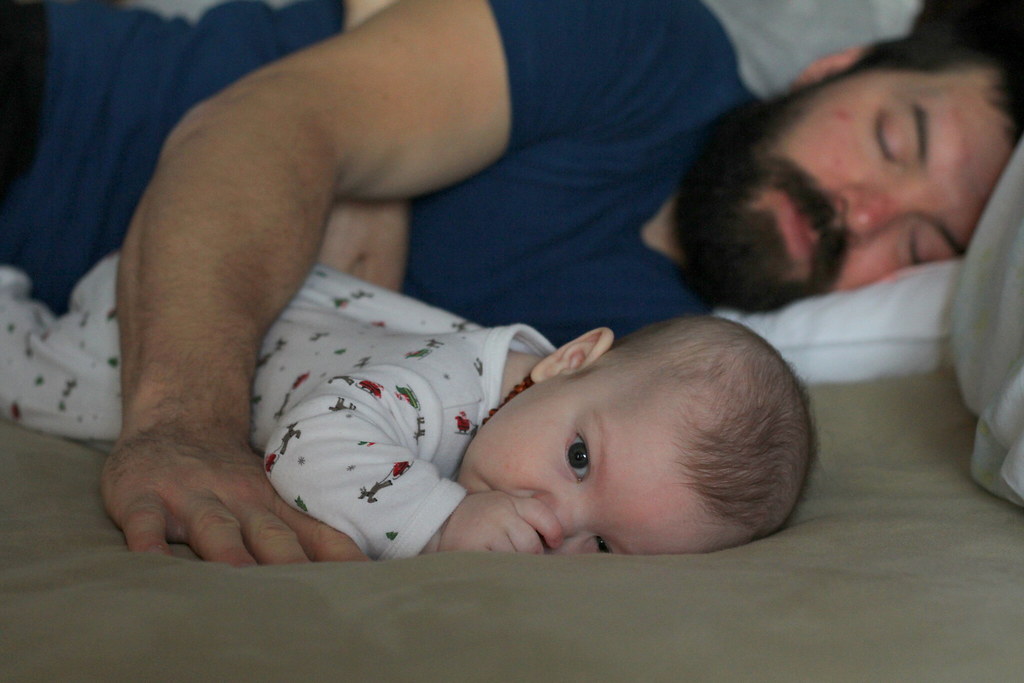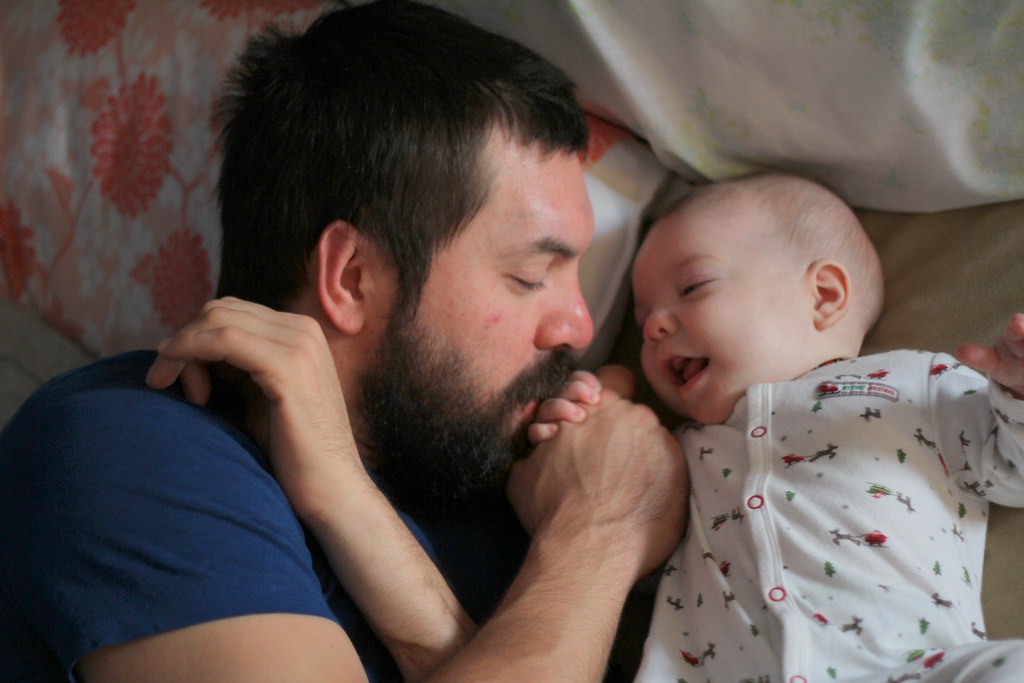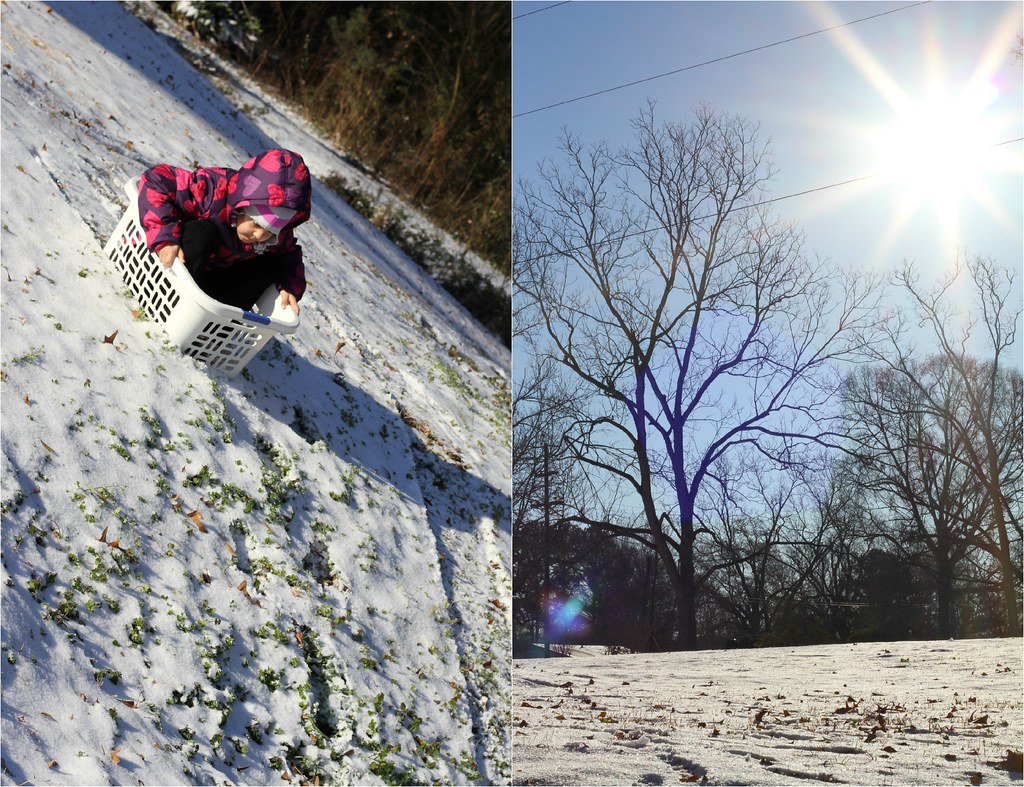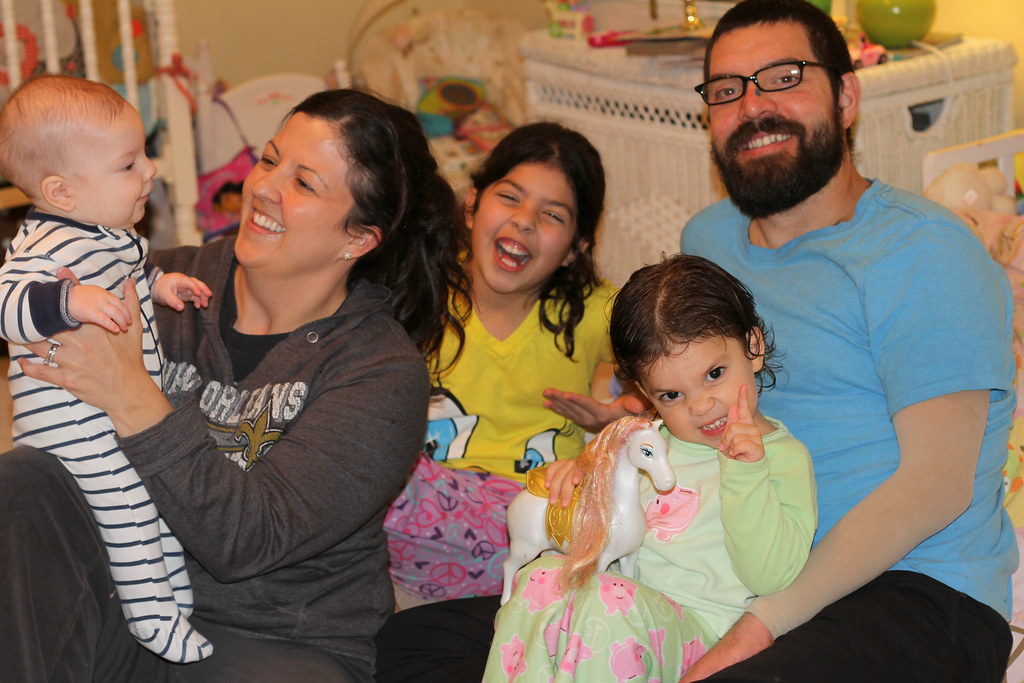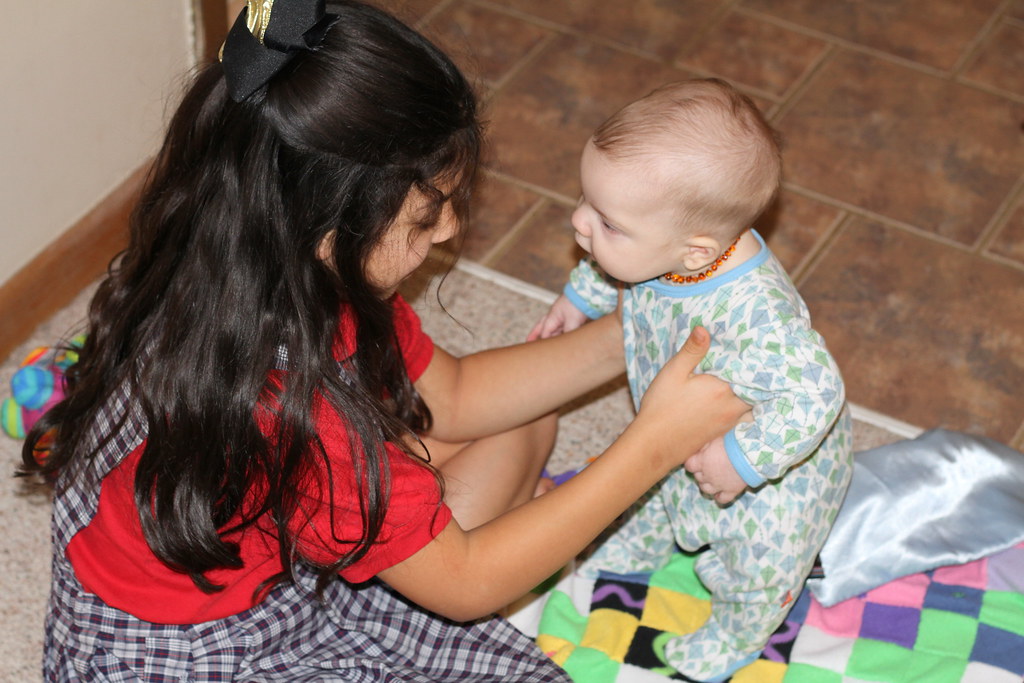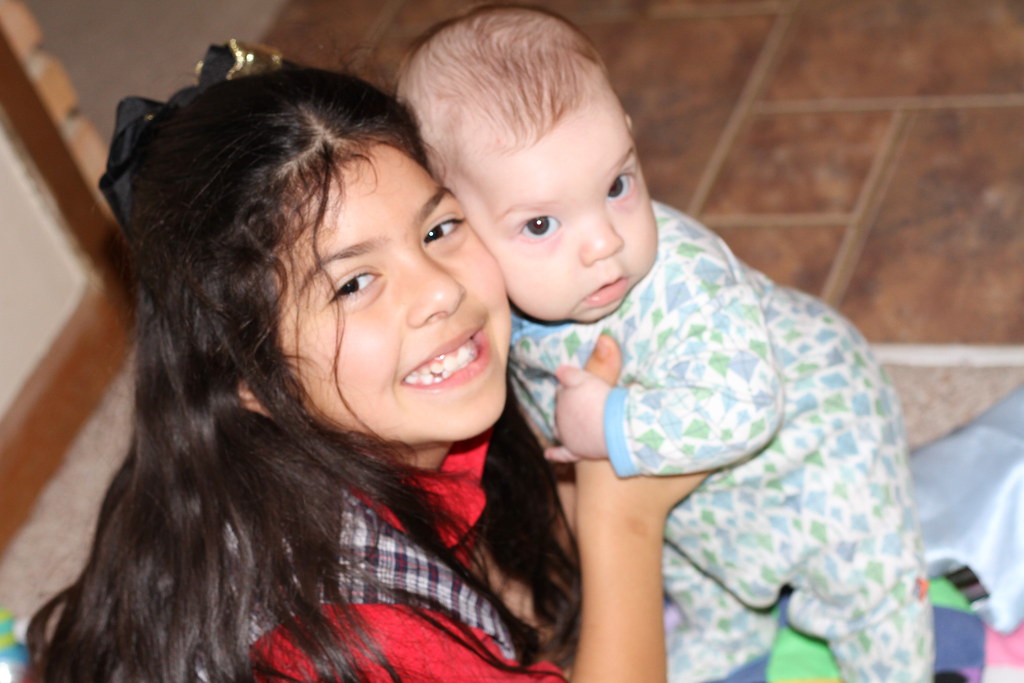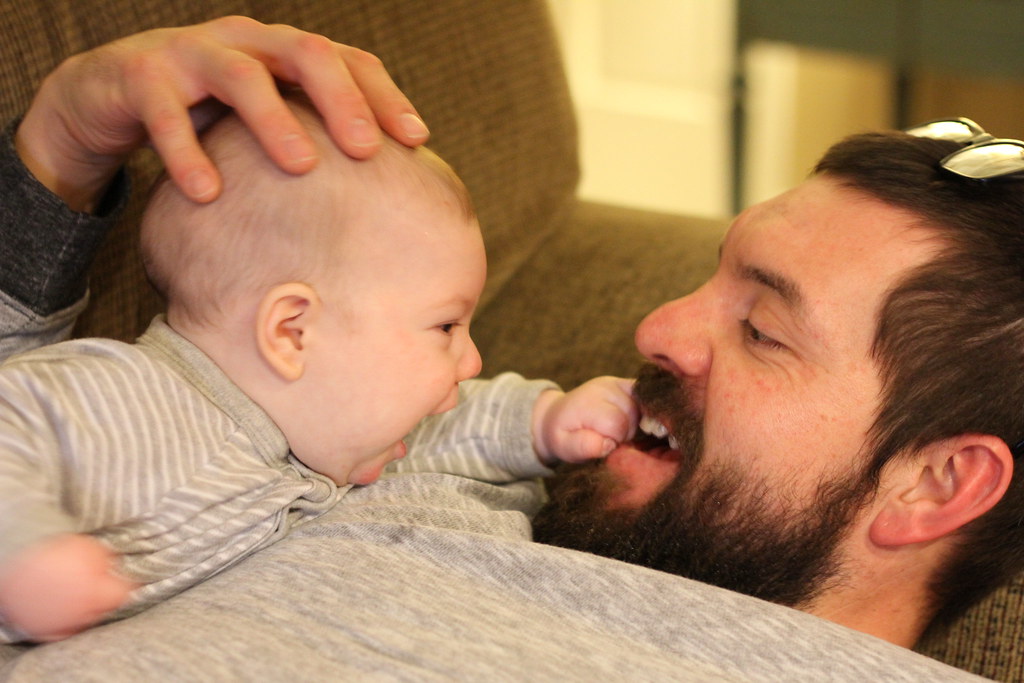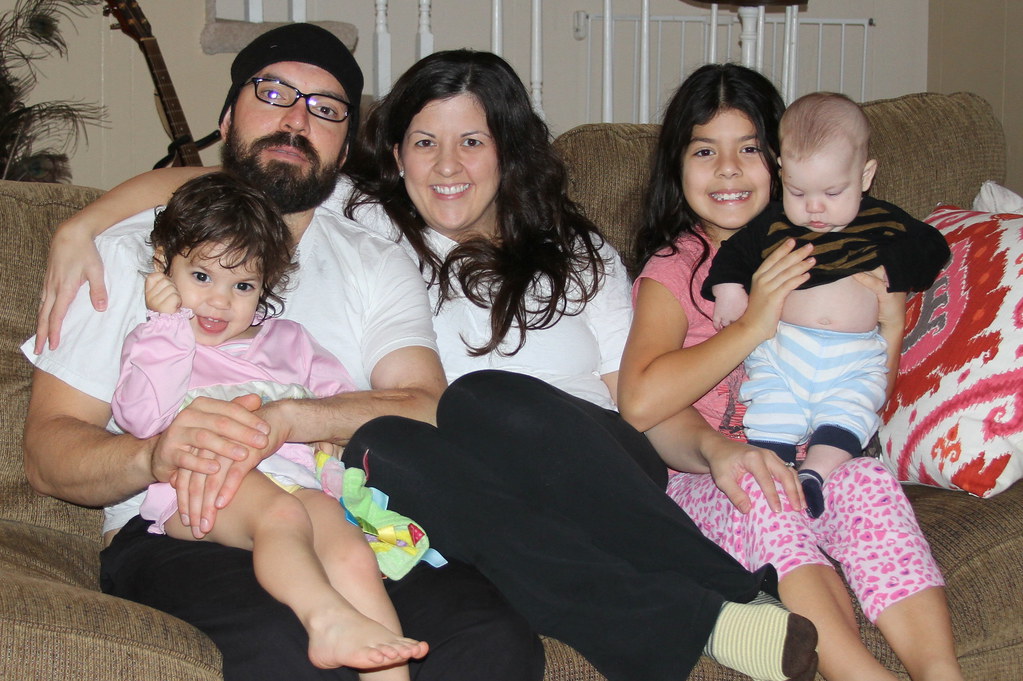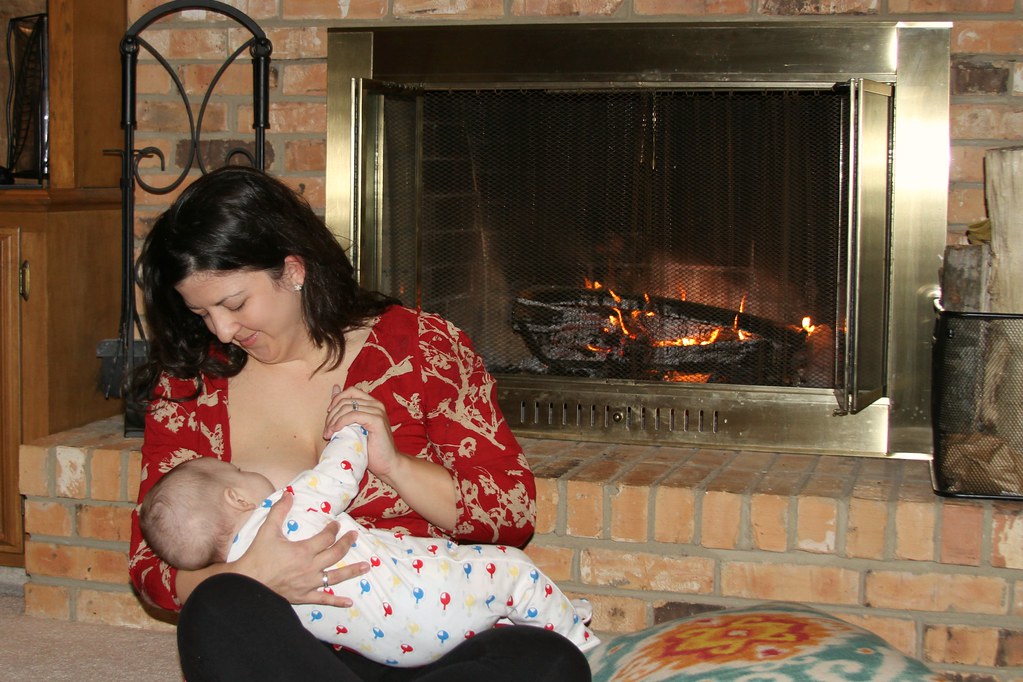When I was pregnant with Isabelle, I focused all of my attention, my heart and my soul, into nurturing my pregnancy. I had every single baby countdown calendar I could get my hands on, attended birthing classes, read books and magazines and online pregnancy forums. I took my vitamins and ate good things and did everything that I was supposed to do. And then the day finally came and she was here and my nurse placed her gently into my arms and said, "Here you go, Mama. You can nurse her now". And she just walked away. And left me. With a brand new baby. I had absolutely no idea what I was doing. I had spent my entire pregnancy obsessing about my pregnancy. Somewhere along the line, I had forgotten to prepare for the hardest part: breastfeeding my newborn.
It's supposed to be natural, right? Your baby is supposed to latch on while you blissfully look down and the bonding just instantly occurs. But, it didn't happen like that for me. I had to really, really work at it. And even with all that working at it, I didn't nurse Belle the way that I wanted to, for as long as I wanted to. I didn't enjoy the process. I succumbed to every single negative aspect of nursing: the pain, the perceived inconveniences, the engorgement, the worrying over whether or not my milk came in, is the baby getting enough, what the hell am I doing?
The second time around, I did things very, very differently. I studied, I read, I talked to other mothers and took notes and collected ideas. I reached out to the lactation consultant at the hospital and had my pump ready and got my husband on board. I put my mind to the task and settled in on a goal: I was going to do this and I was going to do it well. I would not let the negative aspects beat me down. Because it IS hard at first. It just is. And going into the newborn phase as a breastfeeding mama: you need to know that. But, you also need to know that it gets BETTER. Sooner than you might think. It gets easier and easier and you get more comfortable and before you know it, your baby really is latching on effortlessly while you look down at him blissfully. Just like you had hoped.
Here are a few things I've learned along the way to make that blissful moment happen:
1.
Study. Study up on breastfeeding. Read the books, take the classes, ask the questions. Though breastfeeding is, by all accounts, a natural function of our bodies, it is a learned art. Study up on proper positioning, how to tell if your baby is latching properly, what to expect and how to handle it. Put the work in and you will be so grateful when the time comes.
2.
Take care of yourself. Breastfeeding mamas have to drink adequate fluids, we must eat enough calories to support our milk producing bodies. Your milk supply will suffer if you don't make your health a priority, I've experienced it many times. Keep a glass of water near and a snack on the ready. While you're at it, have a bowl of oatmeal for breakfast, invest in some mother's milk tea, and learn to bake lactation cookies. These things all help!
3.
Don't get caught up in the timing. Infants should nurse on demand which, in the beginning, means constantly. I nurse River on one side until he is completely done, pulling himself off the breast rather than me pulling him off, allowing him to get the all powerful
hindmilk. I then offer the other breast: sometimes he nurses again, sometimes not. If he doesn't nurse on the other breast, I start him on that side first at the next feeding. The baby knows when he has had enough, he doesn't need me to time him or coax to the other breast. Once I understood this concept and allowed myself to relax and stop looking at the clock, my anxieties started melting away. Remember: there is no pacifying a hungry baby. When your baby is hungry, stop what you are doing and feed him. Don't waste your time trying to hold him off, there is no holding off a hungry infant. This might mean pulling over on the side of the road to nurse a hungry babe (been there) or asking your older children to be patient while brother nurses AGAIN (done that). Just go with it. You'll find a rhythm soon enough.
4.
It will hurt, but not for long. We've all heard it: if you're doing it right, breastfeeding should not hurt. Well, that's just not true. In the beginning, breastfeeding DOES hurt: your nipples are sore and your breasts are engorged and everything is leaking and uncomfortable. Take courage: this will pass sooner than you might think. When the baby first latches on, take long, slow deep breathes. Close your eyes and BREATH. When you feel the letdown, know that your body is being filled with endorphins and hormones and you may even experience that euphoric high some mothers talk about. Keep your nipples clean and dry, apply lanolin cream as often as you need to. Have an expert check the baby's latch for you, ask them to show you what it should look like so that you can make sure he's doing it correctly at home. Be patient with the baby: he's learning the right way to do this right along with you. Bring the baby to the breast, not the breast to the baby. Use your finger and place it on the inside of the baby's cheek to break the seal rather than just pulling a latched baby off the breast. At the one month mark, you WILL notice a difference. You will nurse your baby and it will suddenly occur to you that the pain has subsided, you're no longer sore, hey this is getting easier! There WILL be a turning point, just keep at it.
5.
If you nurse him, it will come. Do not worry about if or when or how much: your milk will come in. When it comes is different for every mother, do not get caught up in textbook time tables. Remember: nursing is a supply and demand physiological process. The more you nurse, the more milk you will produce. Keep nursing, stay relaxed, and breath. Keep hydrated and fed. When in doubt, consult your lactation consultant.
6.
Form a team. Breastfeeding can be isolating in the early days, the nights stretching out long and dark before you. Reach out to your partner, your family and friends. Don't be afraid to ask for help, don't let your ego prevent you from accepting it. Use your resources: breastfeeding forums, LaLeche, your pump. Have the tools that you need to help you succeed. Be as prepared as you can and then be patient when nothing goes the way that you had hoped. You are not alone in this and you are doing great work: keep at it.
7.
Learn to nurse lying down: it will save your sanity and allow you to get some much needed rest. In the early days, River and I could often be found on the couch or on the floor or in our bed, me dozing peacefully and River nursing AGAIN. It was the only way I was able to rest in the beginning. Practice nursing in different positions, learn which ones your baby prefers and go with it. Use pillows, the Boppy, your knee, whatever you need to in order to support your back.
In the beginning, it's all about survival. You are learning right along with your baby, the two of you literally intertwined in this complicated dance that is really not so complicated once you get the hang of it. Stick with it, give it at least 6 weeks. Yes, 6 weeks. That may seem like a long time when you're struggling in the beginning but you will reach that turning point before you know it. You can do this, mama.



